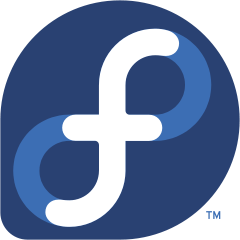Free Code Camp is an organization that teaches people to code. As part of this free training, student coders produce free code needed by nonprofit…
FOSS Force
It appears as if Yahoo has become the pet rodent of the U.S. spooks. To paraphrase: A rat by any other name…
Op-ed
If I were Verizon, I’d be going over my agreement to purchase Yahoo with a fine tooth comb, looking for a way to weasel out of the deal. If I couldn’t find one, after going through with the purchase I’d quietly shut the site down and take a loss on the whole thing. Yahoo has no value anymore, not as a portal nor as a brand.
 The value it once had as the main intersection on the Internet is long gone, despite the fact that the site still commands enough traffic to make it the fifth most visited site on the web. The trouble is, that traffic isn’t arriving through the front door anymore, and visitors aren’t sticking around for more than a minute or two. People no longer visit the site to use all of the nifty features Yahoo once offered, because the majority of those features are long gone. Instead, these days Yahoo’s users come through the back door, either to use Yahoo Mail or to read a news article — usually a reprint from another site — after being directed to the URL by Google.
The value it once had as the main intersection on the Internet is long gone, despite the fact that the site still commands enough traffic to make it the fifth most visited site on the web. The trouble is, that traffic isn’t arriving through the front door anymore, and visitors aren’t sticking around for more than a minute or two. People no longer visit the site to use all of the nifty features Yahoo once offered, because the majority of those features are long gone. Instead, these days Yahoo’s users come through the back door, either to use Yahoo Mail or to read a news article — usually a reprint from another site — after being directed to the URL by Google.
Users of Fedora 24 might want to put any update plans on hold until this bug issue is resolved.
Breaking News
A warning was published Tuesday by Adam Williamson on the Fedora website against running dnf update in a graphical environment in Fedora 24. The warning was issued after numerous users began reporting “duplicated packages” and “kernel updates not working” error messages after running the update.
It’s easy for those of us in the US to become chauvinistic about our language. Our country is geographically huge, making it easy to think…
Also included: Debian developer Kristoffer H. Rose passes, two new distro releases, Apricity OS adds 32-bit, Canonical gets Kubernetes, Snapcraft gets a new release and getting ready for All Things Open.
FOSS Week in Review
Yikes! Remember last weekend when I was so happy that the dog days of summer had left us behind to be replaced with more comfortable autumnal temps? While that’s true, with nights getting chilly enough that I’m going to have to dig out my comforter, I forgot that this time of year is also the peak of the hurricane season. This means that for much of the next week I’m keeping a wary eye to the south, where Hurricane Matthew may or may not have my part of the Carolinas directly in its sights. It looks as if we’ll know better about what it has in mind by Tuesday afternoon.
 Tux Paint needs a Mac maintainer: Everybody’s favorite FOSS paint tool is having a little trouble running on Macs these days — specifically on OS X 10.11 El Capitan. Designed with kids in mind, the app is used extensively at schools, with many school systems now upgrading to El Capitan, which was released a year ago.
Tux Paint needs a Mac maintainer: Everybody’s favorite FOSS paint tool is having a little trouble running on Macs these days — specifically on OS X 10.11 El Capitan. Designed with kids in mind, the app is used extensively at schools, with many school systems now upgrading to El Capitan, which was released a year ago.
These are the ten most read articles on FOSS Force for the month of September, 2016. 1. Discord at Libreboot Over GNU Withdrawal by Christine…
We hope you enjoy and are inspired by this short video celebrating Preeti Murthy and Jessica McKellar, the winners of this year’s Red Hat Women in Open Source Awards.
The Video Screening Room
This short video packs a lot of punch. Inspiring and hopeful.
“Learning how to program does this really important, weird thing in your brain and you realize you have this power now. This mindset that if you see something that could be better, you have the power to change it, is a mindset that I want as many people as possible to have on this planet. It can start with open source, but the really exciting part for me is when you can apply that mindset to other domains.” – Jessica McKellar, Director of Engineering at Dropbox
This Ubuntu-based Linux distribution provides the Internet for those who don’t have 24×7 access to the net.
In the West, we take the Internet for granted. Oh, we may grumble about a slow connection, but that’s a first-world problem. For many, however, the Internet is a “maybe” thing. For those users, Endless’s Endless OS 3, may be just what they need.

This Ubuntu Linux-based operating system is designed for use with the “Asynchronous Internet.”










